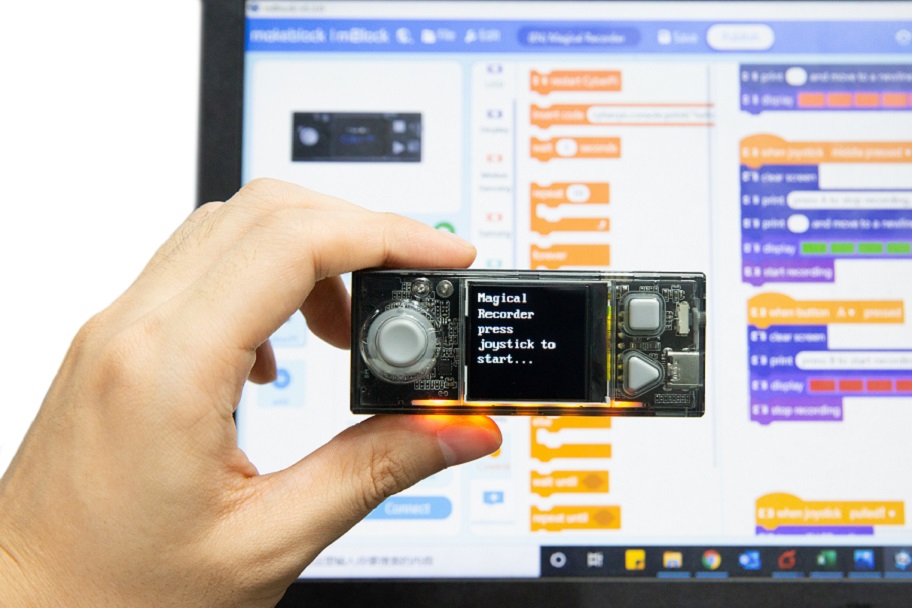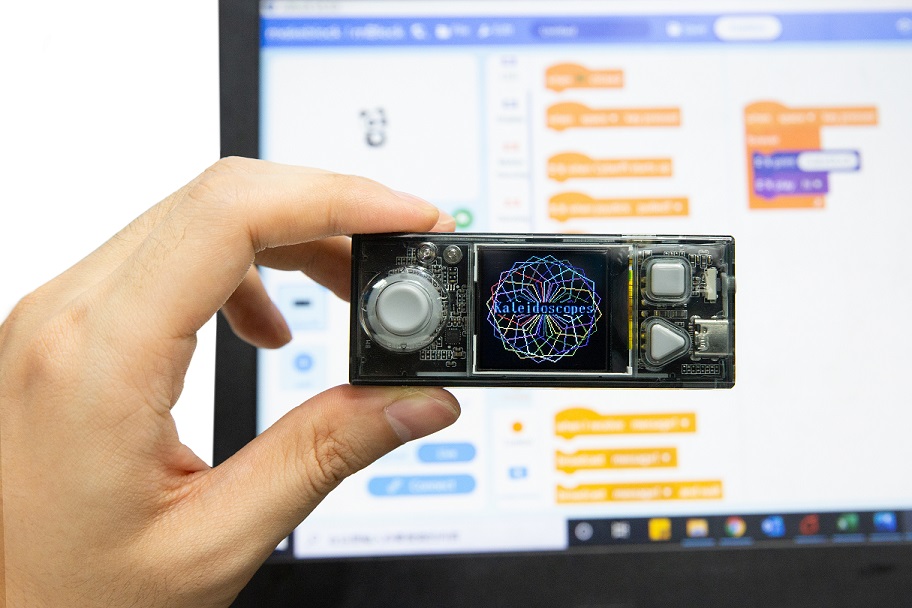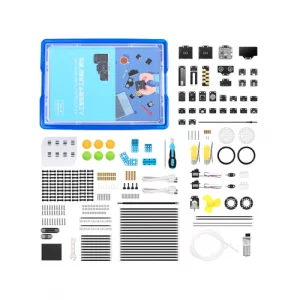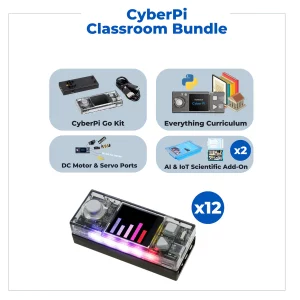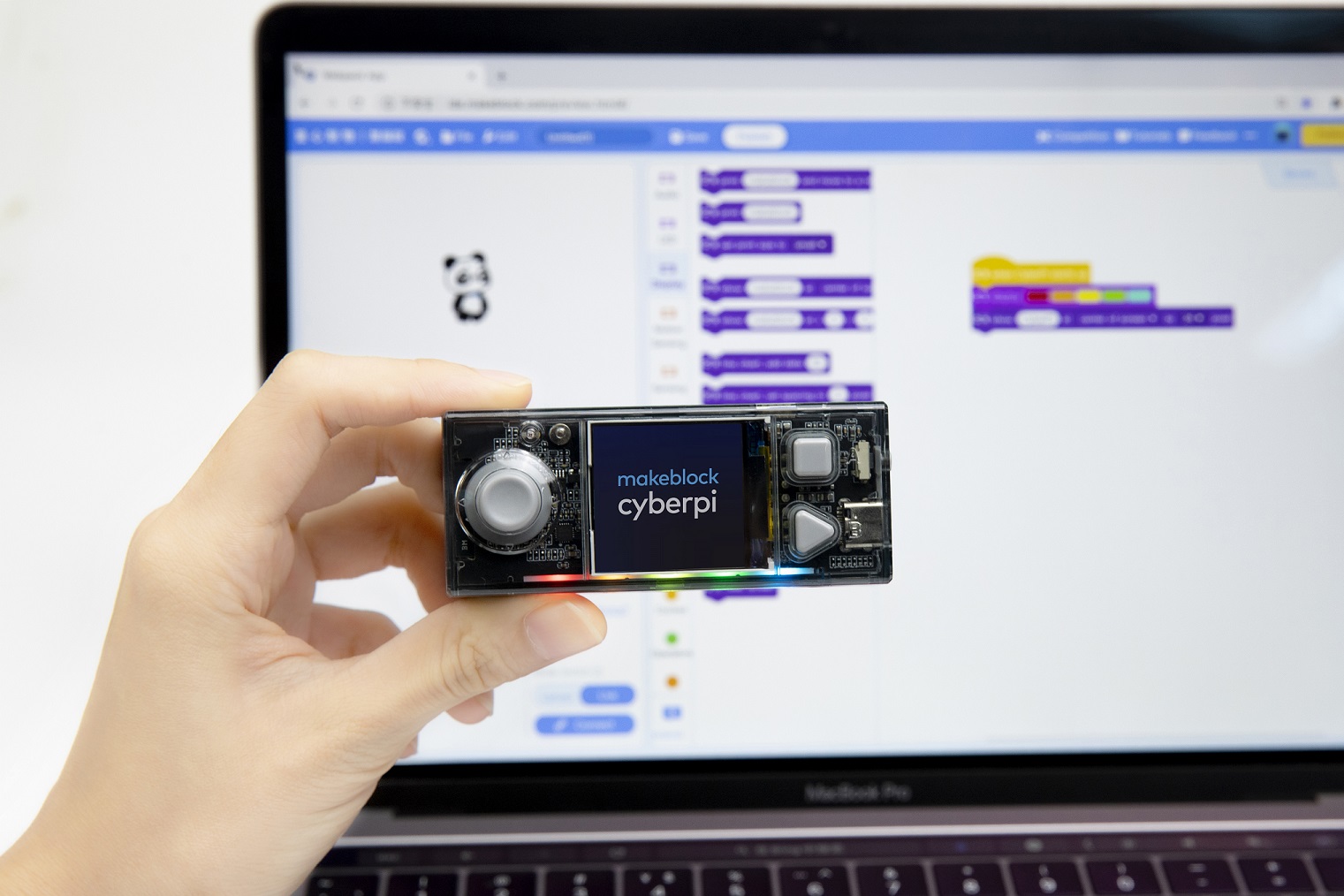
Designed for every student to learn about Computer Science and STEAM. CyberPi is a single-board computer fully packed with advanced electronic sensors, actuators, and communication modules. It is one of the best tools for teaching Artificial Intelligence, Data Science, Networks, and the Internet of Things. The device is powerful, yet affordable and suitable for every classroom. In combination with our impressive mBlock coding editor, it supports Block-based coding language and the text-based programming language Python. CyberPi’s Pocket Shield can connect to many third-party electronic components, making it suitable for various classroom settings and learning scenarios.
You can connect to CyberPi in many ways. You can use an Android device, an Apple device or a computer! For more information, head on to our Getting Started with CyberPi page.
Versatile, Powerful and Easy to Use
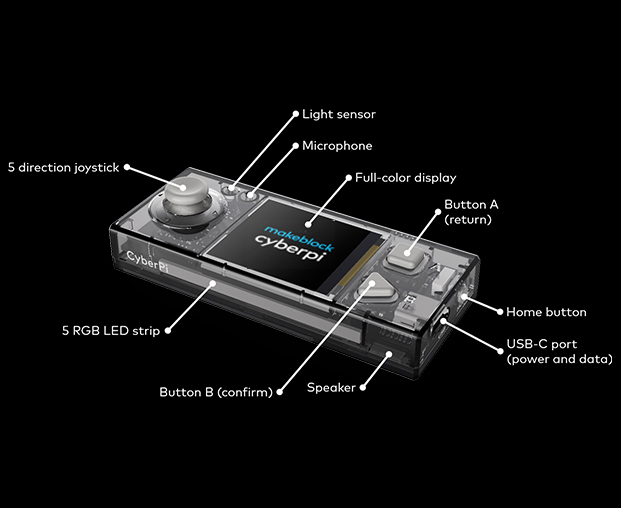

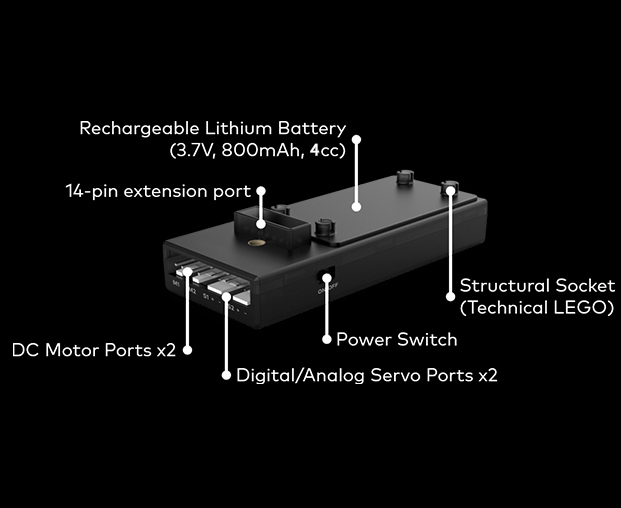
Learn the most relevant Coding languages and about Data Science, Networking, Internet of Things, and Artificial Intelligence with tools and features such as mBlock Python, CyberPi’s multiple embedded and external sensors, CyberPi’s built-in Wi-Fi module and its speech and image recoginition with mBlock stage programming.
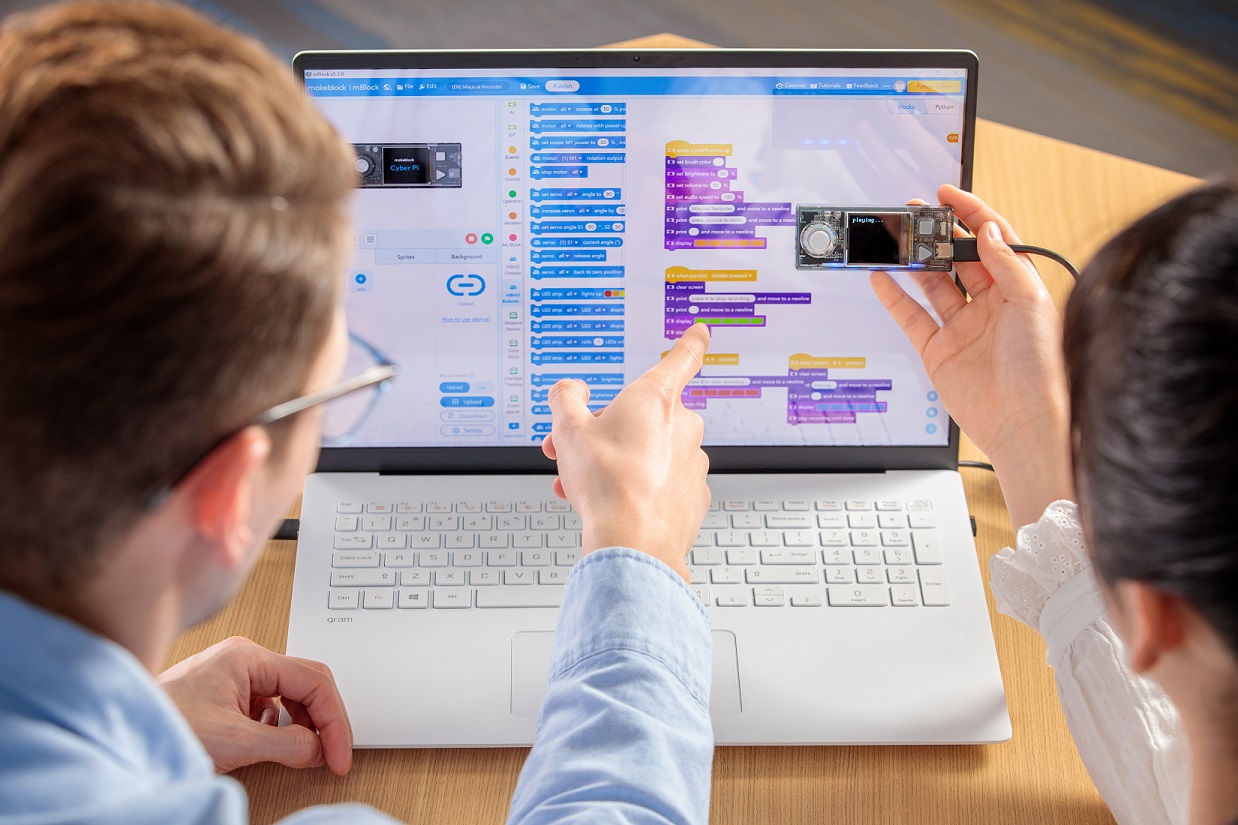
For Educators
Use CyberPi in the Classroom
The highly anticipated single-board computer fully packed with advanced electronic sensors, actuators and communication modules is here! Lessons and curriculum built with Canadian educators in mind, are now ready and aligned to various cross-curricular subject areas across all provinces and territories. This includes Math, Science, Technology, Language Arts and more! Our block-based beginner and advanced lessons help students in Grades 6-8 gain confidence in coding as they slowly transition to more complex coding languages. Our text-based beginner and advanced lessons help students in Grades 9-12 apply their learning in the Python language with CyberPi and take their coding skills to the next level.
A single-board computer, packed with advanced electronics helps teach students in Grades 6-12 while supporting the development of their coding skills from block-based programming to Python. During this training session, you will learn how to integrate the hardware and software that makes it a powerful tool to discover Data Science, Artificial Intelligence, Networks, and the Internet of Things in a learning environment.
Take a look at our Classroom Bundles

Why CyberPi?
- In combination with mBlock, CyberPi provides educators with an integrated solution for teaching with both hardware and software. It also allows educators to teach multiple coding languages, from Block-based programming to Python.
- Being a powerful single board computer, CyberPi can be used to teach a variety of subjects, including AI, Data Science, Networks and IoT.
- Cyber Pi together with its Pocket Shield is compatible with mBuild models and a lot of 3rd party electronic components (e.g. Arduino sensors, Servos, DCmotos etc.), making it suitable for various classroom settings and teaching scenarios.
- With the built-in WIFI module, you can create Local Area Networks between multiple CyberPi, connect to Internet, and explore the Internet of Things.
- Learn about Artificial Intelligence, combining hardware and software to apply recognition of image, speech, text and more.
- Create games and other engaging Human-Computer Interactions with the multiple built-in sensors.
CyberPi’s Accessories
Specs
| Chip | ESP32-WROVER-B | |
| Processor | Main processor | Xtensa® 32-bit LX6 dual-core |
| Clock frequency | 240 MHz | |
| Onboard memory | ROM | 448 KB |
| SRAM | 520 KB | |
| Extended memory | SPI Flash | 8 MB |
| PSRAM | 8 MB | |
| Operating system | CyberOS, developed independently by Makeblock | |
| Wireless communication | Wi-Fi | |
| Dual-mode Bluetooth | ||
| Physical interfaces | Micro USB port (Type-C) | |
| Port for connecting extension boards | ||
| Port for connecting electronic modules (serial communication) | ||
| Dimensions | 84 mm × 35 mm × 13 mm (width × height × depth) | |
| Weight | 36 g |

